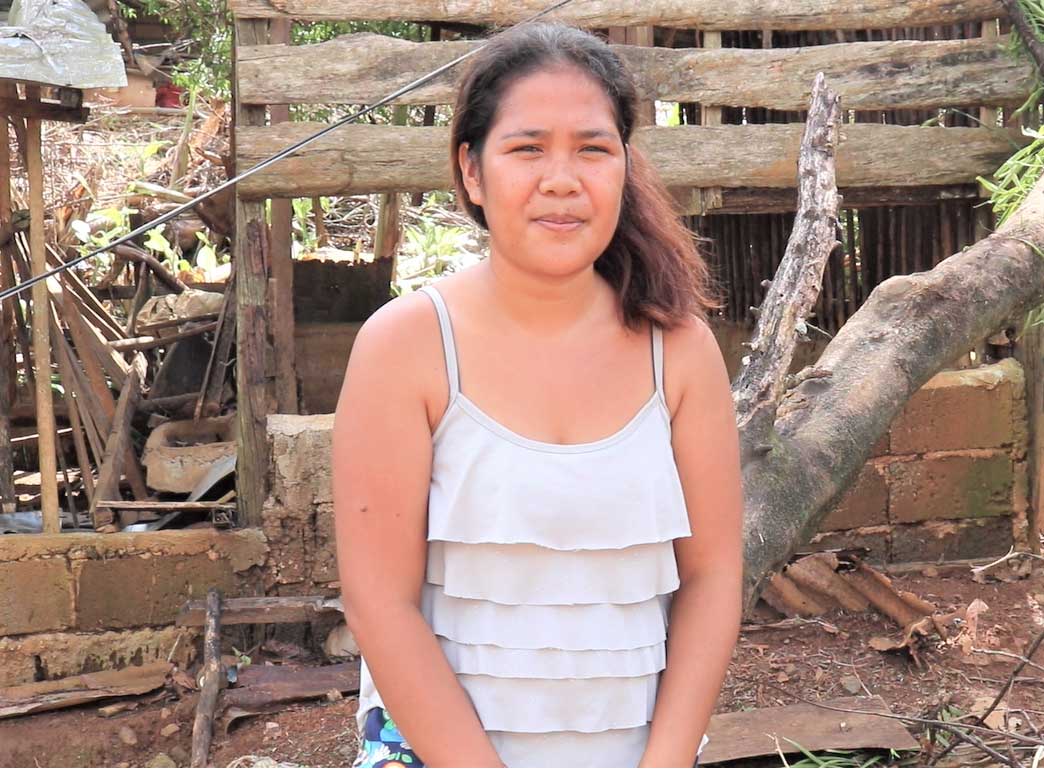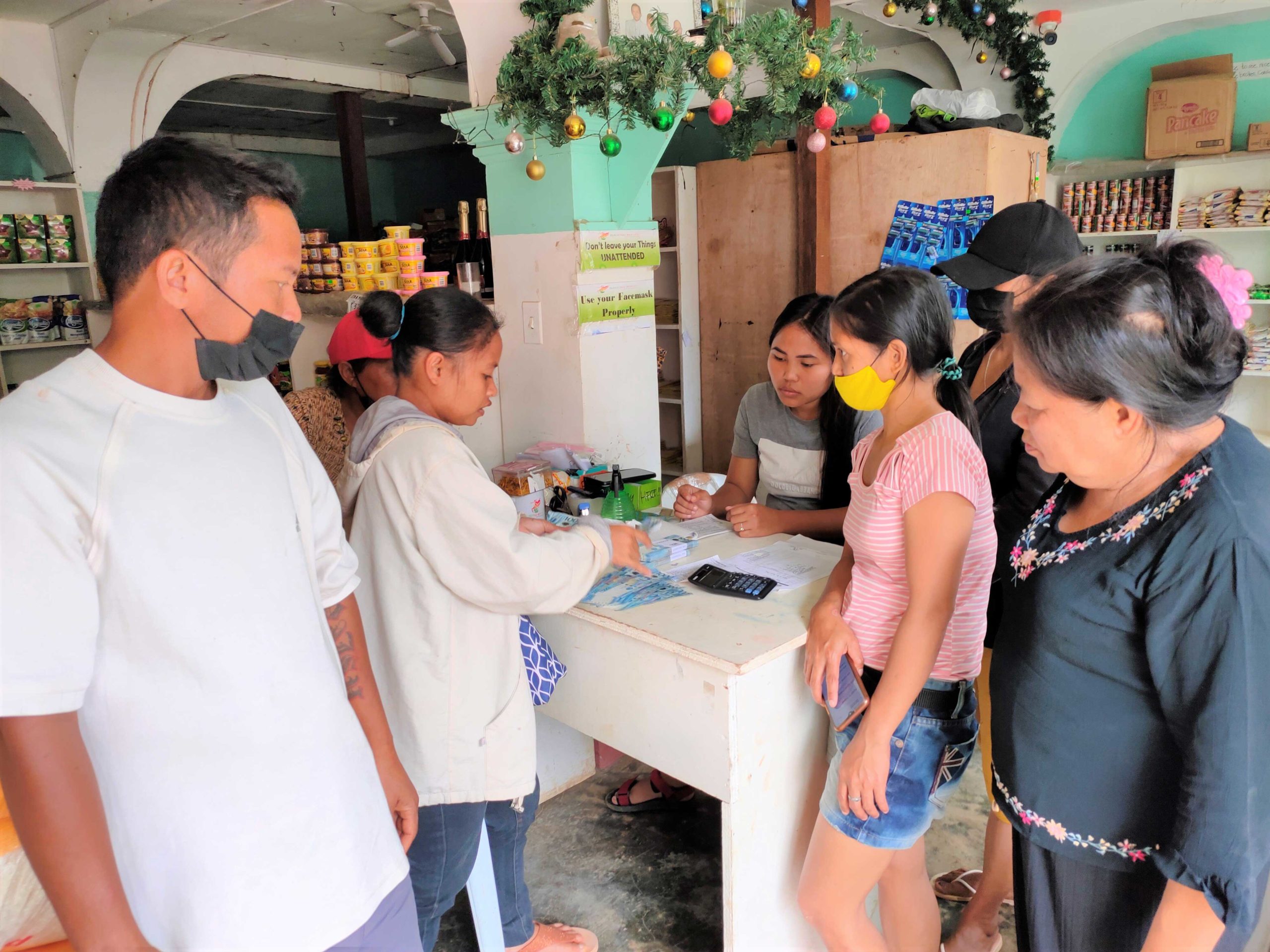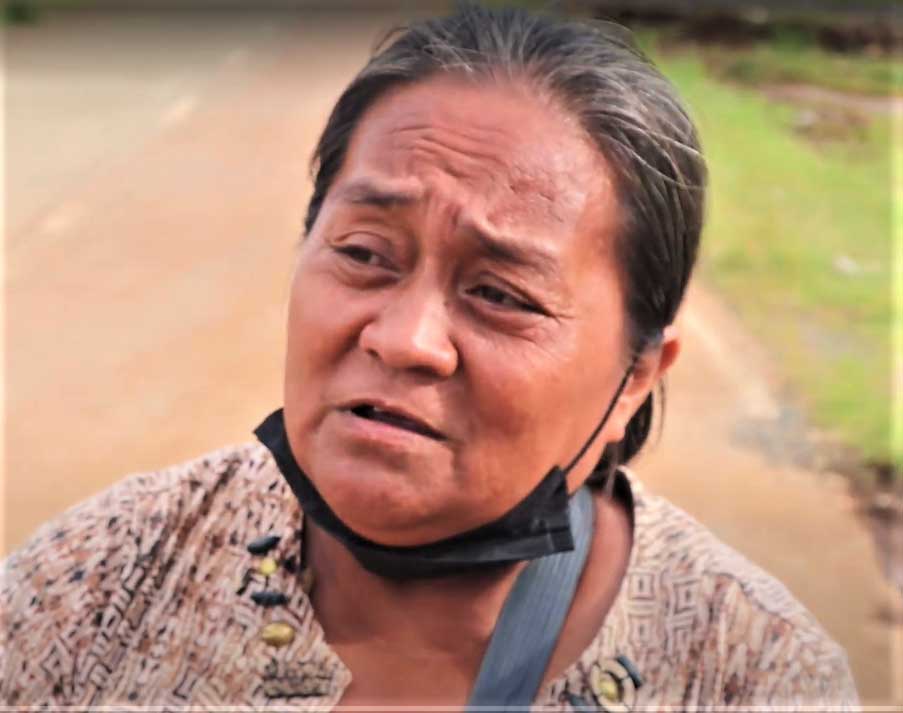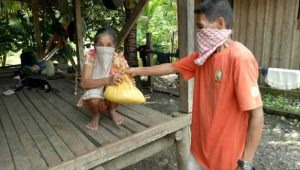“So many overlapping voices, shouting about their problems and needs.”
These were the words expressed by Megie Taba, 27, one of the participants during the conduct of Participatory Action Learning in Crisis (PALC) in barangay Rosita, Libjo, Dinagat Islands last January 7, 2022 with the Ecosystems Work for Essential Benefits, Inc. (ECOWEB).
The activity took place on the terrace of the barangay hall which sits on top of an overlooking view of the community. Once a land of natural abundance and life, now portrays a bleak and barren terrain.
The municipal government of Libjo recorded 966 affected population which comprises the 300 families in barangay Rosita. Houses were made out of light materials resulting into a total destruction of many.
Community inquiry was done through the survivor and community-led response (sclr) approach which directed them to decide and function collaboratively.

“When we were asked about our current situation, everyone answered in chorus. When asked what we need, everyone even raised their voice,” said Megie as she narrated how the participants were divided into two; the half shouted for food, and the other half yelled for construction materials.
Three leaders selected by the community led the discussion, prioritization of their needs, and planning. Some volunteered to take charge of the community profile validation since there were names not included in the list endorsed by the local government unit. One also offered his vehicle for canvassing and distribution.
Despite the struggle on what to purchase, Megie was optimistic that they will arrive into a definite decision, with “but when we were tasked to take over the discussion, I heard one voice, and that was to address the sole need of the community.”
PLANNING
The process on consideration, consolidation, and compromising of needs was never easy according to Aidelyn Montecastro, 29, resident of Purok (district) 5, and one of the selected leaders, who thought that they will just receive relief assistance as she uttered, “we barely receive relief packs since the onslaught of Odette, everyone needs something to sate their stomach.”
Throughout the planning process, leaders listed down the common needs, evaluated as to how likely it will be received from other agencies, and weighted each’s importance according to their status quo.

Photo: Aidelyn (middle) and her co-volunteers listing the goods they will buy.
“It is normal that some would assert to consider theirs (needs)especially that we’re left with nothing, but it prevailed that food is what we definitely need,” said Aidelyn, as she held a manila paper with the list of needs to be bought.
After several discussions, their needs boiled down to 10 kilos of rice, canned goods, instant noodles, hygiene soap, and adult and toddler diaper. These shall augment their growing crops in the backyard.
Aidelyn admitted that she was astonished to have experienced a unique way of relief assistance, as she expressed, “even though it was your (ECOWEB’s) activity, you still took the people’s decision, and we were happy because we were involved in the process.”
CANVASSING and PURCHASING
After laying plans, the group decided who will take charge for canvassing considering over an hour of travel and the absence of public vehicles. Fortunately, Manuel Paradero, 46, and a barangay councilor, offered his electric motorcab to transport his co-volunteers to do the canvassing.
Three pairs separately went to different stores in the municipality of San Jose aiming to get low price and purchase more.
At first, numerous stores denied them for the mere reason that “they(stores) thought that we will pay them with cheque.” Manuel explained that the purchase will be made through cash.
Goods worth of 250,000 pesos was ordered from their selected local store who also happens to have survived typhoon Odette but numerous sacks of rice were soaked in water.

Photo: Manuel (in white shirt) together with his co-volunteers made order at a local store in San Juan which goods will be delivered on the next day.
“We chose this store because we also want to help our local businesses here,” said Manuel.
Manuel with his co-volunteers took the chance to buy other needs for their family like medicines. Some of their neighbors also asked favor to buy them other essentials.
They seem to enjoy roaming around as they seldomly travel to San Jose – where businesses are centered.
“It is good to hear that the decision comes from us and you (ECOWEB) just let us buy what we need,” said Manuel as he smiles during an interview while waiting for other co-volunteers.
More volunteers were mobilized tasked for unloading of goods, packing, distribution, and informing each purok of their schedule.
“It is part of our effort to volunteer and to not just help ourselves but the entire community,” said Manuel.
REVALIDATING
As the ECOWEB team was about to release the cash on the next day, Aidelyn approached while holding a paper with names on it and said “we coordinated with our barangay Secretary and found out that there are 315 families.”

Photo: Community volunteers receiving cash assistance handed by Ms. Renfe Padilla of ECOWEB.
In contrary to the recorded 300 names, these added 15 families came from unlisted non-residents of Rosita- families who could have spent their holiday in Rosita but suddenly caught up by the typhoon.
It is now a challenge to the leaders on how to deal with the prevailing concern. Everyone survived the disaster; hence, everyone should be treated fairly.

“There should be no regrets and all families will be given,” said Manuel.
The team let the leaders consult their community and decide how they are going to deal with the concern.
“It is not possible to exclude them,” Aidelyn’s strong stance.
After the discussion, everyone agreed to accommodate all the 315 families, with, “instead of each family to receive 10 kilos, we are going to re-divide equally,” said Manuel.
The community successfully addressed the concern and managed the goods favorable to all families.
DISTRIBUTION
The distribution process will be done by purok led by the community volunteers along with the leaders. Leaders made sure of the proper distribution through fixing of signature of beneficiaries on the list.
Roselyn Andoy, 53, a resident of Purok 2, Rosita, and one of the volunteers, witnessed how the distribution went as planned, with “this is the assistance we needed.”
As a result, everyone on the list received their food packs and same goes to a few who asked for diapers.

“Of all the relief packs we received, no one even thought of providing us soap and diapers which are also common needs in barangay Rosita,” said Roselyn.
Furthermore, the monitoring of this project will be headed by Ms. Nora-Ann Baliling ( https://bit.ly/3MBy0zb ) the school principal of Albor Central Elementary School who wholeheartedly volunteered to take part of this endeavor.
“This locally-led action will give us greater self-reliance,” Nora-Ann said.
This intervention was funded by the Legatum foundation through the Ecosystems Work for Essential Benefits, (ECOWEB) Inc.
Sclr understands the situation and the immediate needs of survivors of typhoon Odette. Due to the limited fund accumulated from different donors, ECOWEB made sure of a reputable and just process of relief assistance with the help of our partners and the community.
The situation faced by the people of Rosita accentuates a call for help most especially to those who barely receive food packs.
To date, Rosita needs housing materials like galvanized tin roof, nails, lumber, and plywood.
They too deserve the right to a decent and adequate shelter.







